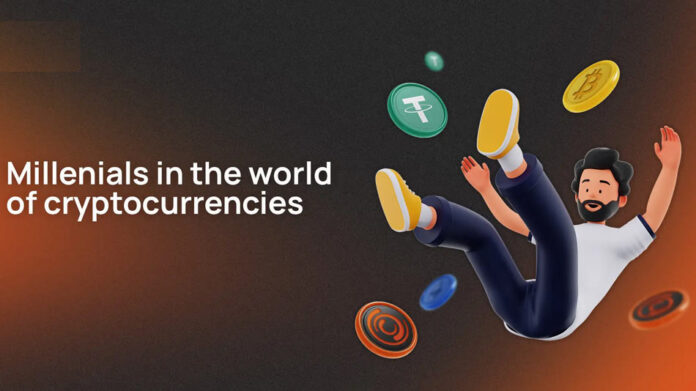Table of Contents
Millennials, the era born within the early 1980s and mid-nineties, have been at the forefront of embracing technological innovation and challenging conventional norms. In the sector of finance, millennials are increasingly turning to digital assets, including cryptocurrencies, as a means of investment and monetary empowerment. Platforms like Quple Ai Website are becoming hubs for millennials seeking to navigate the complexities of the crypto market and make informed investment decisions. In this text, we explore the growing trend of crypto investment among millennials, the factors driving this adoption, and the implications for the future of finance.
Embracing technological innovation
Millennials, regularly called virtual natives, have grown up in a technology of rapid technological development in which virtual gear and structures are vital to regular lifestyles. As such, millennials are inherently comfortable with the generation and are more open to exploring possibilities in different kinds of finance, such as cryptocurrencies.
Cryptocurrencies offer millennials a decentralized and digital alternative to conventional financial systems, aligning with their values of innovation, transparency, and decentralization. The peer-to-peer nature of cryptocurrencies resonates with millennials’ desire for autonomy and manipulation over their price range, empowering them to transact and make investments without the need for intermediaries.
Financial Empowerment and Independence
For many millennials, crypto investment represents a possibility for monetary empowerment and independence in an increasingly uncertain monetary landscape. Unlike conventional funding automobiles, including stocks or real belongings, cryptocurrencies provide fewer boundaries to get into, allowing millennials to invest smaller quantities of capital and take part in worldwide markets.
Additionally, cryptocurrencies offer millennials access to financial services and investment possibilities that may be unavailable or restrained within conventional banking structures. Decentralized finance (DeFi) structures, for instance, provide an extensive variety of monetary services, including lending, borrowing, and buying and promoting, without the need for conventional intermediaries.
Distrust of Traditional Financial Institutions
Millennials’ attitudes toward traditional economic institutions had been shaped by their activities together with the 2008 financial catastrophe and the next banking scandals, leading to a massive distrust of banks and monetary intermediaries. Cryptocurrencies, with their promise of decentralization and transparency, enchant millennials searching out alternatives to traditional banking structures.
Moreover, millennials are interested in the ethos of the crypto network, which emphasizes requirements that include monetary inclusion, transparency, and self-sovereignty. Participating in the crypto marketplace lets millennials align their monetary values with their non-public ideals and make contributions to the boom of an additional inclusive and obvious economic environment.
Investment Potential and Returns
Despite the volatility and risks related to cryptocurrencies, millennials are interested in the capability for excessive returns and wealth accumulation in the virtual asset market. The meteoric upward push of Bitcoin and different cryptocurrencies in recent years has captured the eye of millennials trying to capitalize on funding possibilities and collect economic desires.
While cryptocurrencies are inherently speculative belongings, millennials are willing to truly be given higher ranges of threat in pursuit of doubtlessly higher rewards. Many millennials view crypto funding as a protracted-time period technique, protecting their virtual property with the belief that it will appreciate in fee over time and offer a hedge against inflation and fiat forex depreciation.
Education and Information Accessibility
The proliferation of facts and educational assets on cryptocurrencies has played a large role in the millennial adoption of digital belongings. Millennials have access to a wealth of online belongings, which encompass blogs, forums, social media systems, and educational websites, where they can learn about blockchain generation and cryptocurrency investment techniques.
Moreover, the upward thrust of crypto influencers, idea leaders, and content material creators on structures like YouTube and TikTok has democratized the right of entry to crypto schooling and market insights. Millennials can learn from experienced investors, interact with the crypto community, and stay knowledgeable about marketplace developments and inclinations in real-time.
Implications for the Future of Finance
The growing adoption of cryptocurrencies amongst millennials is reshaping the future of finance, tough traditional banking structures, and paving the way for a greater decentralized and inclusive economic ecosystem. As millennials come to be a dominant force inside the worldwide economic machine, their alternatives and behaviors are shaping the path of financial innovation and digital transformation.
The cryptocurrency and blockchain eras provide millennials with the opportunity to participate in a monetary system that is obvious, available, and resilient to censorship and manipulation. By embracing crypto investment, millennials are not only most effectively diversifying their funding portfolios, but they are also using the democratization of finance and the decentralization of power within the virtual age.
Conclusion
Millennials’ embody of crypto investment represents an essential shift in the way people interact with and recognize financial structures. With their affinity for the era, desire for monetary empowerment, and distrust of conventional institutions, millennials are one step closer to a greater decentralized and inclusive financial destiny.
As millennials continue to force adoption and innovation in the crypto area, the impact on traditional finance may be profound, accelerating the transition closer to virtual assets and blockchain-based solutions. While stressful conditions and regulatory hurdles continue to exist, the growing attractiveness of cryptocurrencies among millennials signals a paradigm shift in the manner in which we make investments, transact, and save in the digital age.















